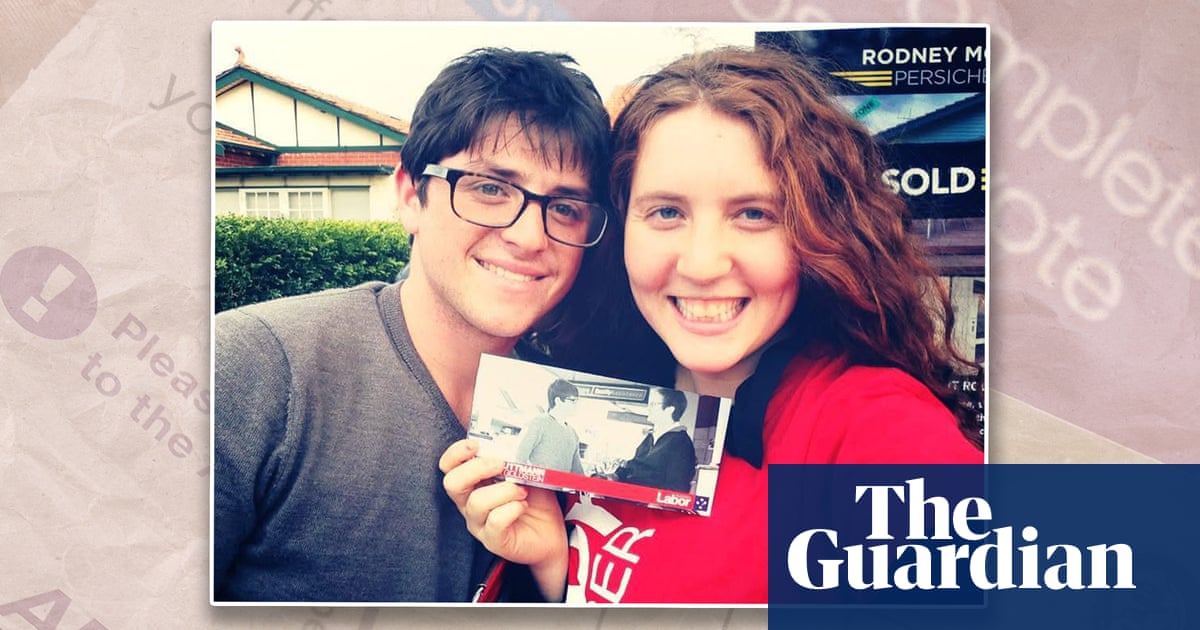Daniel and I went to the same high school in Melbourne. He was a year older than me, and we must have passed each other thousands of times, but I have no memory of ever talking to him. We knew of each other but we didn’t know each other’s names.
We met properly for the first time at a pre-drinks when I was in my first year of university. He was holding a six-pack of beer and looked vaguely familiar. I introduced myself, he offered me one of his drinks and we got talking.
Not long after, we started dating. We’d walk on the beach in St Kildatogether, cook meals and grab coffee whenever we could. It was simple, easy and just felt right.
I quickly realised Daniel and I could dive deep into a shared passion of ours – Australian politics – without it ever turning into a fight. At the time, I was studying politics as part of my arts/law degree, and Daniel had been a member of the Labor party since he was 16.
In Daniel, I found someone who spoke the same language and shared similar values. Politics wasn’t the sole foundation of our relationship, but when something big happened, we weren’t shy about debating it.
While we were still at university, Daniel landed a job working for a politician. I decided to copy him, and I emailed every member of parliament in Victoria until one of them offered me a role. If he could do it, so could I. We pushed each other forward like that and we still do.
When Daniel decided to run for federal parliament at just 21, I campaigned with him every step of the way. We door-knocked together and handed out his flyers. People would do a double take when they met him, looking at his scuffed Converse sneakers.
He ran in a safe Liberal seat, against a candidate who later became Australia’s trade minister. Slim chances didn’t bother Daniel, though. He ran for office because he had the time and believed in the cause.
I remember being so proud of him for trying his best, even in the face of great odds.
The night of the election, we hung out and watched the results roll in live on TV. Daniel was exhausted after handing out how-to-vote cards all day, and we both knew he’d lost. Despite that, he still had a big smile on his face, and in that moment I knew this was my guy. I felt so moved watching how much Daniel gave of himself – not for praise, but because he truly cared. It was one of those quiet, powerful moments.
When I ran for parliament, years later, Daniel returned the favour. He hung my posters around our neighbourhood and helped me letterbox. When the votes were counted and I didn’t win, he knew exactly what to say, because he’d been there too.
We’ve been married for a decade now and have five kids together. Despite the chaos of our busy life, Daniel and I regularly have animated discussions about what’s going on in the country.
Our garage is still a jumble of old campaign signs wedged between prams and half-empty tins of paint. The kids sometimes drag one out, asking if we really did run for parliament and if we won. We laugh, because that was never the point. For us, politics is about trying to make Australia a better place.
These days, we’re more likely to be caring for our children than campaigning, but the ideas that motivated us back then still drive us. We did it for the children we were dreaming of, and now we’re raising them.
Your contact details are helpful so we can contact you for more information. They will only be seen by the Guardian.
Your contact details are helpful so we can contact you for more information. They will only be seen by the Guardian.
